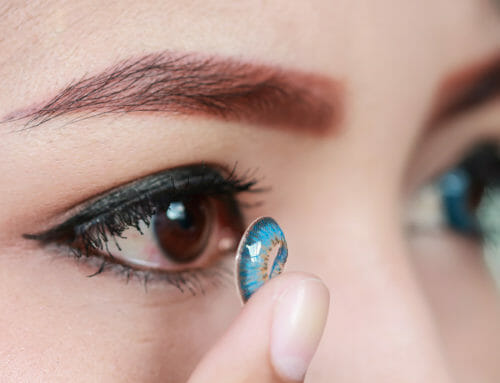
Corneal Infections And Ulcers Treatment
A corneal infection can arise from various situations. They can occur following damage to the cornea if a foreign object has touched the eye, this could be from accidentally poking your eye with something or getting grit or even an eyelash in the eye.
Corneal infections can also start from contact lens wear if the contact lens has bacteria on it, this could be from touching your lenses with dirty hands, this bacterium then gets transferred to the cornea.
All types of corneal infections can be painful and cause inflammation, and can cause keratitis. Keratitis is a type of corneal infection that may; lower clarity of vision, cause corneal discharge and can even wear away the cornea if left untreated.
Infections of the cornea, whichever type it may be, could also lead to scarring of the cornea. Corneal scarring can lead to severely reduced vision. The only option to help this may be to have a corneal transplant. This would be in severe cases, which is why if you have any signs of a corneal infection or have any concerns after anything entering your eye you should visit an eye doctor as soon as possible. They can advise the best course of action.
Generally, if the corneal infection is deeper then complications and symptoms tend to be more severe. Contact lens wearers are at a higher risk of corneal infections due to the nature of them, so they should take proper precautions to prevent this as much as possible. Such as having clean hands when inserting or removing contact lenses.
As mentioned above serious corneal infections can lead to needing a corneal transplant, especially if left untreated. Minor infections are normally treated with antibacterial and/or antibiotic eye drops and usually clear up in a week or so. Moderate to severe infections may need more intensive treatment of antibacterial and/or antibiotic eye drops along with steroid eye drops to decrease the inflammation. It may take a few months to clear up the infection.
Visiting an ophthalmologist if you have any concerns of a corneal infection is always the best thing to do, so you can get the correct diagnosis and treatment.

About the expert
Mr Hamada | Consultant Ophthalmologist and Corneal Surgeon
MD, MSc, DO (hons), FRCSEd, FRCOphth I am Samer, founder and consultant ophthalmic surgeon with over 20 years’ experience in ophthalmology. I am a world-renowned specialist in cornea, cataract and refractive surgery. I’m not only a leading surgeon but also the only dual fellowship trained in corneal diseases in children from reputable institutions in the UK. At Eye Clinic London I work closely with other consultant ophthalmologists, optometrists and orthoptists to achieve the best outcomes for our patients. Our main aim is to make sure our patients get the safest and best treatments available to them. We put your safety before anything else so you can rest assured that if you choose us you will be in the best and safest hands.



